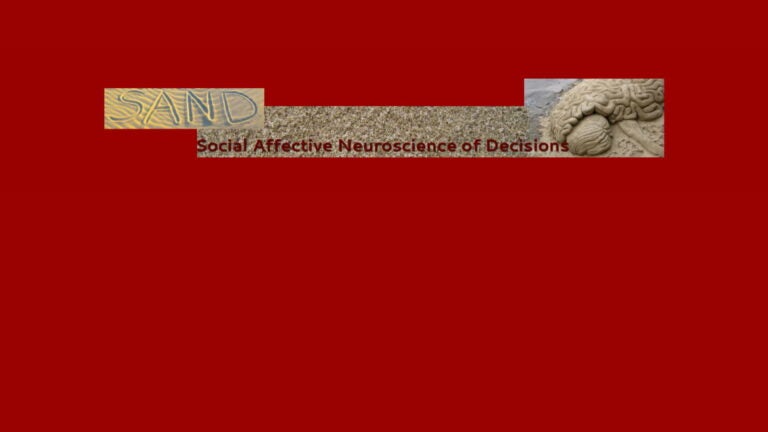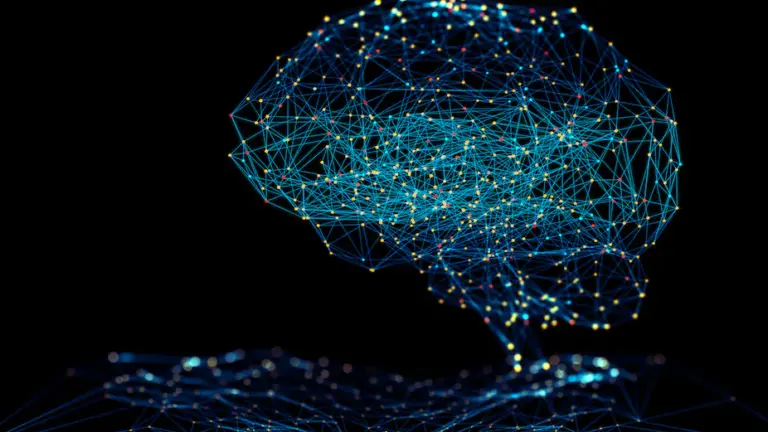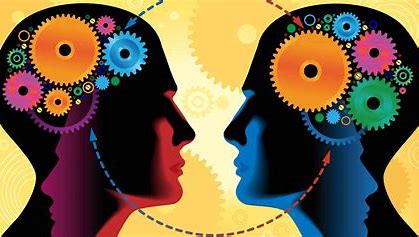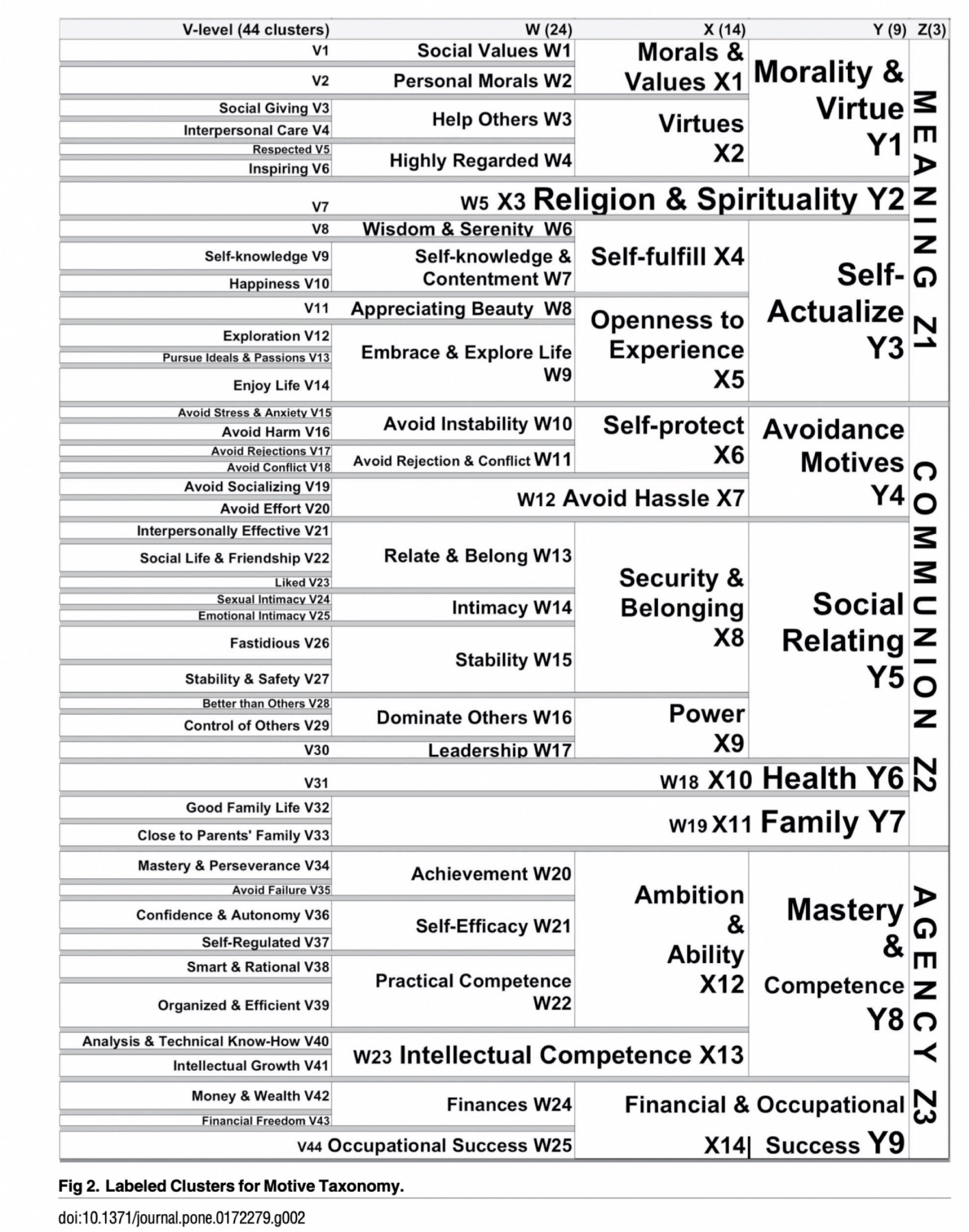The SANDLAB (Social Affective Neuroscience of Decision-making)
The lab is interested in the neurobiological, motivational, and cognitive bases of human social behavior. A major focus of the lab is the use of computational models (neural network models) and current neurobiological findings and methods to illuminate various aspects of human social thought and behavior. We are especially interested in the integration of computational models with behavioral and neurobiological findings.
The lab addresses a number of central topics in human social reasoning and behavior. Our primary ones are listed below and on our research links.
Research
Motivation, Personality, and Decision-making
The lab is deeply involved in understanding human motivation and is approaching this from multiple perspectives. The foundation of our work is a neurobiological and computational model of human motivation based on the behavior of the ventral striatal (nucleus accumbens) dopamine reward system. We are examining normal Motivation and Decision-making, the structure and dynamics of normal personality and pathologies of motivation, such as depression and anxiety
Neural Network Models: Social Reasoning and Behavior
Our lab focuses on building neurobiologically plausible neural network models in different domains:
- Motivation
- Structure and Dynamics of Personality
- Motivated Decision-making and Behavior
- Pathologies of Motivation: Depression, Anxiety
- Social Evaluation and Threat Perception
- Coherence-based Reasoning in Decision-making
- Coherence in Belief Systems, Belief Change and attitude accessibility
- Impression Formation and Person Perception
Coherence-based Reasoning
We have conducted a series of studies testing a coherence-based model of decision making based on these parallel constraint satisfaction processes in neural networks. We have investigated decision-making and judgment in both legal and everyday contexts. Our work has looked at both Cold Cognition and Hot Cognition 0r Motivated Cognition.
Dan Simon and I have recently published an article arguing that Coherence-based reasoning is the mechanism behind a wide range of reasoning biases.
Social Perception
We have proposed a model of social perception that argues that making sense of other’s behavior is very much like understanding a story where, as we read the story, we build a more and more detailed mental model or mental structure of the characters and events, and the motivation and personality of the characters. To build these mental models or narrative structures we draw on a rich body of knowledge that we have developed over our years, and we use constraint satisfaction processes to fit these pieces of knowledge together into a coherent representation.
Taxonomies of Human Motivation
A fundamental requirement for truly understanding human motivation is having a detailed hierarchical taxonomy of human motivation that allows us to move from the broadest of human motives to fairly specific goals. Over the years my colleagues and I have developed two detailed, hierarchical taxonomies of human motives.
Prior Work
Neurobiology of Risky Decision-making
We conducted a NIDA funded grant that allowed us to examine the neural circuitry underlying risky decision making in METH and non-METH using men who have sex with men (MSM). We used a combination of fMRI, structural MRI, diffusion tensor imaging (DTI), personality questionnaires, and computational modeling to attempt to capture the components and the neural circuit that underlies risky decision making.
Interactive Media
We previously worked on an NIGMS funded grant on computational modeling of motivation, personality and risky decision-making. The project attempted to build a neurobiologically based model of the major components involved in risky decision-making.
Lynn Miller and I had an extensive body of work over about 20 years on using Interactive Media to change risky sexual behavior in men who have sex with men.
Contact Steve
Stephen J. Read
Mendel B. Silberberg Professor of Social Psychology
821 SGM
3620 McClintock Ave
Department of Psychology
University of Southern California
Los Angeles, CA 90089-1061





